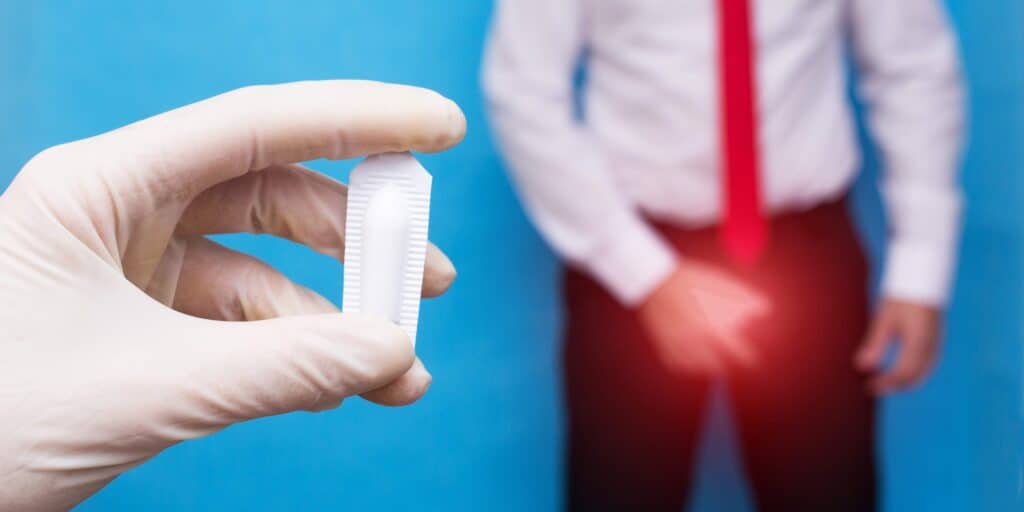What is it?
Hematuria is when there is blood in a person’s urine. This can occur in both adults and children.
The bleeding is not usually painful unless blood clots are passed through your urine.
Types
There are 2 types of Hematuria: Gross Hematuria and Microscopic Hematuria.
In Gross Hematuria, a person can see blood in their urine without any special instruments. The urine may look pink, red, or the color of tea or cola.
For Microscopic Hematuria, you may not see blood in your urine, but the blood can be seen through a microscope.
When should I see a doctor?
In many cases, blood in urine can be harmless. It is also not uncommon for children to have some blood in their urine.
There are many causes of Hematuria, and many can be easily treated or go away on their own.[1] Sometimes, dark or red-coloured urine may be because of some medications or food that you’ve taken, and not Hematuria.
However, it is best to talk to your doctor if you do not know the reason behind this change of colour. This is because Hematuria can sometimes indicate a serious disorder or health condition.
Going to a doctor and finding the cause behind Hematuria or a change in colour of urine is important in helping you find a suitable treatment if needed.

Below are some common causes of Hematuria:
- Vigorous exercise
- long-distance runners especially may be more prone to Hematuria
- Injury / Trauma
- Medications
- Prostate issues
- Mineral imbalances in the urine
- For example, High Calcium levels in urine, called Hypercalciuria, can cause Hematuria.
- Patients with Hypercalciuria experience no pain with Hematuria. Alternatively, they may associate pain with Hematuria with pain around the kidney, or a burning feeling while urinating.
- Children with Hypercalciuria and Hematuria are more likely to develop Kidney stones in the future, though only 10-15% of children actually develop stones.
- Most children with microscopic hematuria do not need treatment unless they have developed a kidney stone.
- Do note that children with Hypercalciuria should still ingest normal amounts of dietary calcium, it is more important to deposit enough calcium in the skeleton of growing children than to worry about the small risk of developing kidney stones later in life
- For example, High Calcium levels in urine, called Hypercalciuria, can cause Hematuria.
- Sexual activity
- Menstruation
- Endometriosis
- A condition in women where tissue normally in the uterus grows in another place, like the bladder
More serious reasons people may have hematuria include Glomerulonephritis A common cause of Hematuria. Abnormal structures in the urinary tract or kidney Kidney stones Polycystic kidney disease (a genetic disorder in which many cysts grow on a person’s kidneys) Cysts (fluid-filled sacs) in kidneys can lead to hematuria as well Bladder or kidney cancer Inflammation of the kidney, urethra, bladder, or prostate Systemic illnesses (blood disorders)
For example, Sickle cell disease, which is a genetic disorder where a person’s body makes abnormally sickle-shaped red blood cells. Another example is Hemophilia, which is a blood-clotting disorder. Urinary tract (bladder, kidney, and prostate) infections Structural problems or blockage in the urinary tract Bacterial or Viral illness Like hepatitis, which is a virus that causes liver disease and inflammation of the liver Like Streptococcus, which causes throat infections and pneumonia Inherited diseases polycystic kidney disease Alport’s syndrome Inherited nephritis
What if there is no cause?
Sometimes, doctors will not find any cause of Hematuria. This is also known as Idiopathic Hematuria. Idiopathic hematuria can be genetic, and this condition is called familial idiopathic hematuria. If there is no family history of kidney failure and other medical tests are also negative, no treatment is needed usually.
Possible signs of Hematuria
- You may find nothing unusual except for suddenly finding blood in your urine or in your routine medical or insurance checkup.
- If you have burning urination. Alternatively, if you feel like you have to pass urine very frequently yet only pass very little amounts of urine and feel that you have not passed all your urine completely
- These are typical signs of a urinary tract infection
- If you experience very sharp pain which starts usually from one loin and gradually to your groin
- This is a strong indicator of kidney stone
- If you have had previous experience with radiation treatment to your bladder or pelvis for cancer
- This can result in radiation cystitis even years later
- If you have gone through pelvic surgery, with recurrent or repeated urinary tract infection (UTI)
- This leads doctors to suspect that there is a foreign body in the bladder. This a rare complication
- If you experience vaginal dryness, or experience pain during sex after your menopause.
- This is very likely a case of urogenital syndrome.
If you are concerned about blood in your urine, it is best to consult a medical professional. Although hematuria can be benign, it could also be indicative of a more serious condition. If you have concerns about your health, it is always best to err on the side of caution and seek out qualified help.
In the meantime, share this article with any friends who may have similar worries – knowledge is power!

